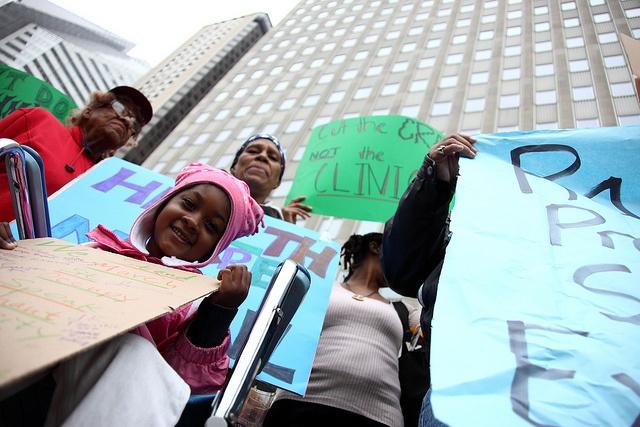
By Eileen Howard Boone, CVS
This year marks the 50th anniversary of the National Association of Community Health Centers – and a time to reflect on how the organization began – as a modest social experiment during America’s War on Poverty. It was the first time in our nation’s history that physicians, nurses, local community leaders and government officials came together to build a new type of community-based health care that would bring doctors, primary and preventative health services into low-income communities. It would serve all people – no matter who they were, where they lived, regardless of their income or insurance status. It would empower individuals living in those communities and give them an opportunity to fulfill their health care needs, which for most, had been neglected.
That small investment 50 years ago has saved countless lives and has strengthened thousands of communities. Today, community health centers stand as the largest and the most successful primary care system in the country and serve more than 24 million Americans, including 7 million children and more than 260,000 veterans in 9,200 communities nationwide. They have increased access to much-needed health care, giving more people the chance to live healthier and stronger.
As a nation and as individuals, we can all do our part to address the need for more accessible, coordinated health care in our local communities to help ensure that every person has the resources they need to stay healthy. We’ve seen firsthand the impact we can make when we work together to improve care coordination. Through the CVS Health Foundation, we’ve been able to make meaningful progress toward improving care coordination, better managing chronic conditions and increasing access to care by supporting local community health centers nationwide through our partnership with the National Association of Community Health Centers.
For example, in Massachusetts, the MetroWest Free Medical Program has used grant dollars to provide intensive and coordinated health education to its patients as well as follow-up care, which helped 92 percent of follow-up patients improve their medication adherence.
The St. Thomas Clinic in Franklin, Indiana, was able to use funds from the partnership to improve compliance with hospital discharge instructions from 33 percent prior to the Coordinator of Care program, to 77 percent in 2014.
When compared to other health care providers, health centers produce more than $1,200 in savings per patient per year and health centers generate $24 billion in savings a year across the entire health care system. Their patients are less likely to visit emergency rooms for non-emergency care and hospital stays are lessened or even prevented because health care centers focus on preventative patient education and effective management of chronic and costly diseases.
But health centers are more than just health care providers: They support the community through job creation. Across the country, health centers employ over 160,000 full-time doctors, nurses and other health care professionals and support staff, which also includes our nation’s veterans. Health centers are often the largest providers of jobs and jobs training in their communities.
Throughout their 50 years, community health centers have always been called upon to do more – to serve a greater need to make people healthier and communities stronger. Yet today, 62 million Americans still live in areas with little or no access to doctors or health services. So the question is – will community health centers be needed in the future?
We believe they will. While changes in our health care system will qualify millions of more people for health coverage, it's still a challenge for many, especially those in underserved populations, to access quality care. As we celebrate 50 years of America’s community health centers this year, we look forward to many more years of supporting community health centers in the future – our health and our communities are depending on it.
As part of their commitment to helping people on their path to better health, the CVS Health Foundation made a multi-year $5 million investment to increase affordable access to health care in communities nationwide through partnerships with national community health organizations, including the National Association of Community Health Centers. For information on how you can support community health centers, click here.
Eileen Howard Boone is Senior Vice President, Corporate Social Responsibility and Philanthropy, CVS Health and President of the CVS Health Foundation
TriplePundit has published articles from over 1000 contributors. If you'd like to be a guest author, please get in touch!














